Life is Strange team's new game Vampyr lets you kill EVERYONE to save London, or destroy it
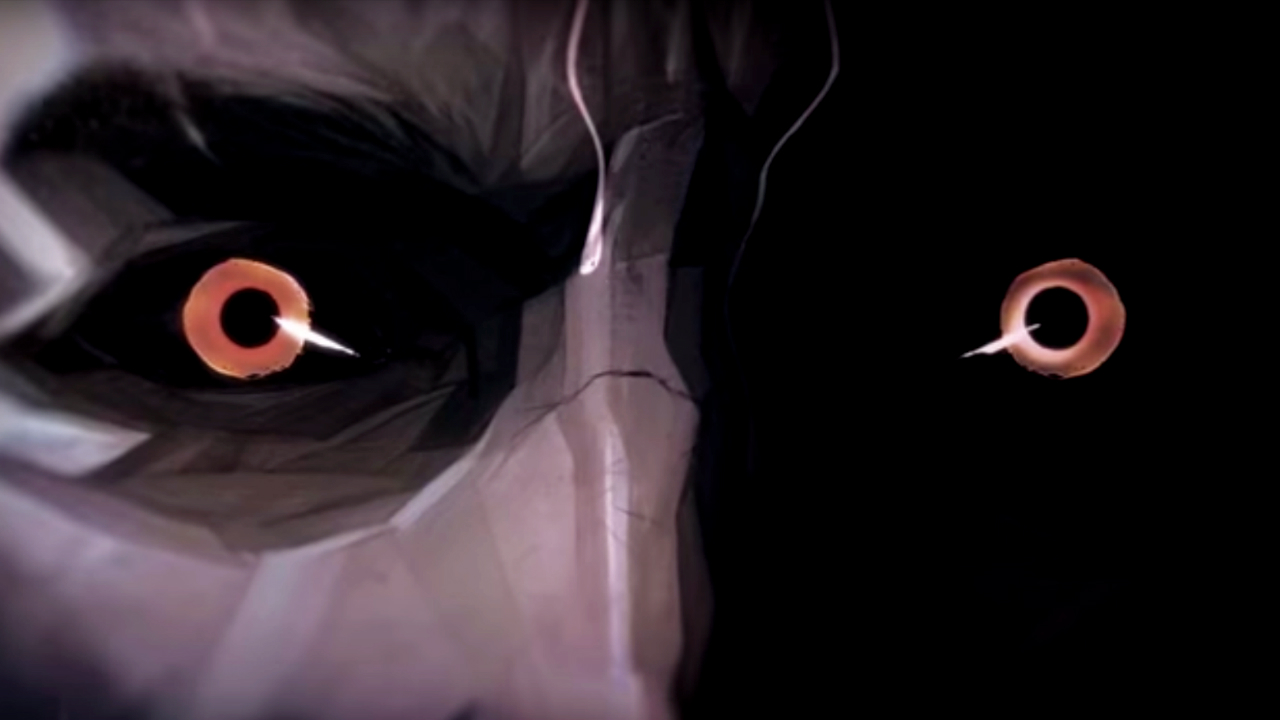
It was a dark and stormy night when I interviewed Stéphane Beauverger, Vampyr’s Narrative Director at Dontnod entertainment, the creators of Life is Strange. He had plenty to tell me about Vampyr, the role-playing game where you play Jonathan Reid, a newly-turned vampire who finds himself in London just as it’s hit by the Spanish flu pandemic of 1918.
Just like Life is Strange, Vampyr is focused on narrative: a poet performs his work outside a cemetery in the dark of night, there’s in-depth dialogue with NPCs, and Reid experiences thoroughly understandable turmoil about whether he’s a monster now that his canines are much sharper. Yet there’s also slick combat where you can drain the blood from your enemies mid-fight to amp up your vampiric powers, which include crushing your enemies between giant hands made of shadow, and teleporting forwards in the blink of an eye by transforming into swirling clouds of black mist. But Vampyr is about a lot more than sucking blood from random people in the street - everyone has heard the line ‘the decisions you make affect the whole game’, but Vampyr takes it to new levels as you can influence the health of the entire city of London, which draws slightly uncomfortable parallels with what it must be like to own livestock.
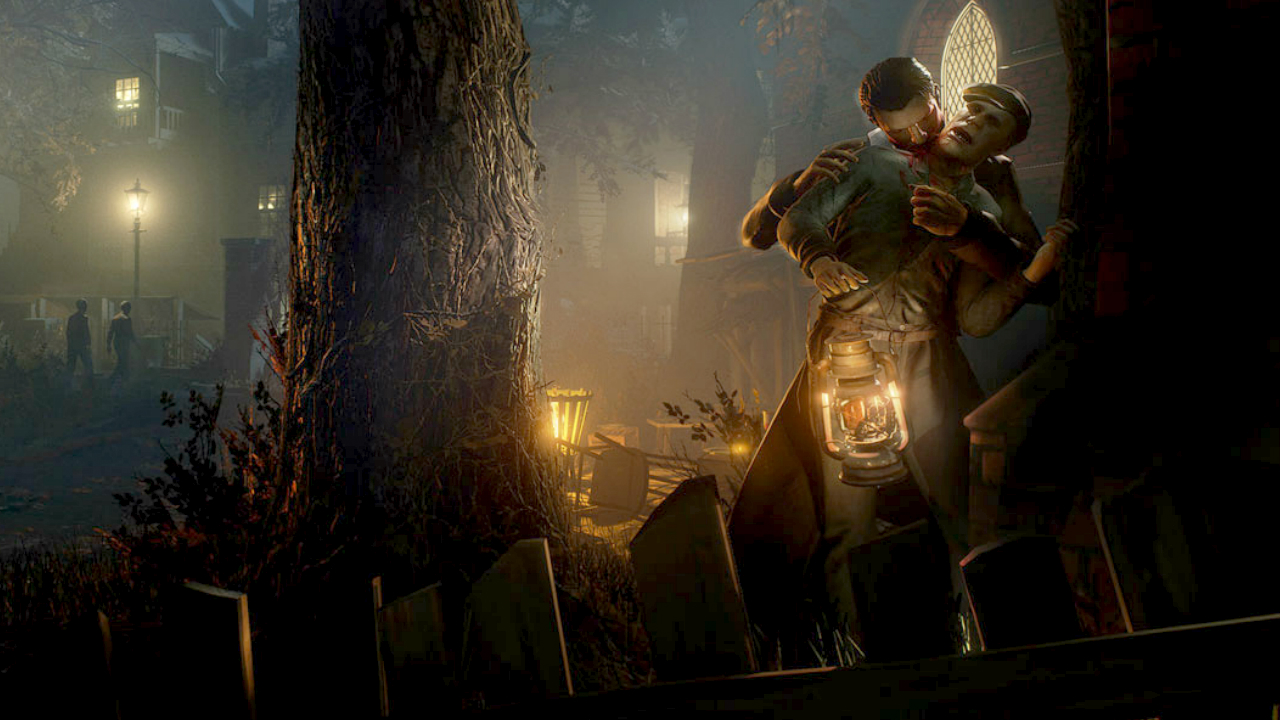
Vampyr doesn’t treat death as an alien event in the otherwise ordinary rhythm of city life. In the real world, finding a corpse in the street means sudden screams, shouting, hunting down the murderer, then somehow ridding the city of them whether by execution or banishment. There would be nightmares. Hushed rumours of the killer returning. Fear. But not in Vampyr.
During the autumn of 1918 lives are being hemorrhaged both at home and abroad. Across the ocean, World War One rages. The Spanish flu pandemic has infected London and people drop like flies from a disease which kills in less than a day. Death walks the streets, and Vampyr’s protagonist Jonathan Reid is right behind him.
Reid returns from the war a changed man. He’s still a brilliant physician, but somehow he’s been turned into a vampire, consigned to the night and able to wield supernatural powers. Upon his return to London he’s confronted with the complications which come from having spent his adult years as a doctor, yet now he’s also bound to feed on people to survive, even though he’s able to cure the Spanish flu coursing through London. Beauverger knows that when vampires are depicted as an enemy they can easily be “monstrous and evil to give the players a reason to confront and destroy them”. But with Reid as the main character Beauverger wants us to see that vampires have a “human side” and can “express doubts” about their condition and the acts it forces them to commit.
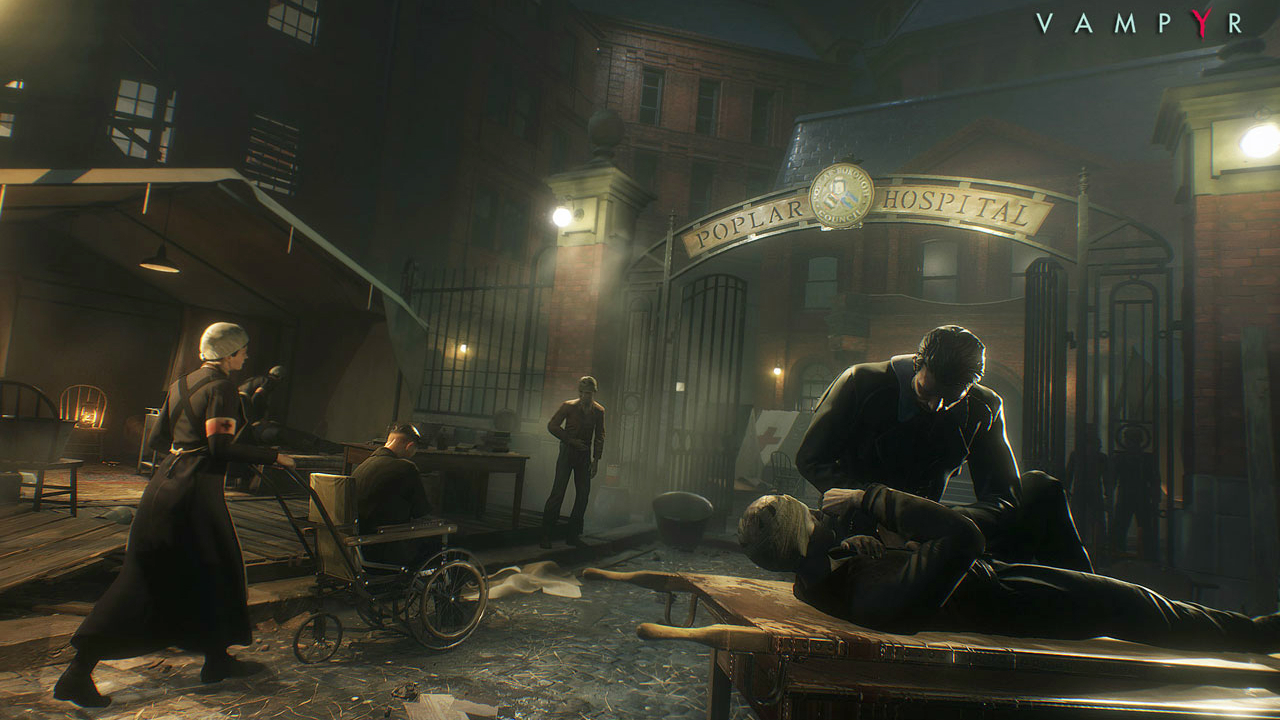
Because you, the player, will have to decide how far you’re willing to sacrifice others to sate your own vampiric needs. Although Reid is living (or not, as the case may be) in “an era as bright as it was dark” with scientific and medical discoveries, the sheer number of people dying in the streets means that “a vampire can kill without being noticed”. Would being murdered in a very bloody couple of seconds be merciful compared to experiencing an agonising death drawn out over days? That’s for you to decide. The flu pandemic provides a convenient cover for your killing, yet forces you to confront the fact that you might be adding to London’s problem rather than resolving it. Amidst so much death, contributing to the number of bodies in order to become more powerful seems callous at first, selfish, even sadistic - but perhaps saving someone doesn’t always mean curing them of the Spanish flu, but rather presenting them with a permanent release from its grasp.
So morality in Vampyr is tricky, to say the least. Morals in most games are restricted to choices you make at a single point - spare or kill someone, take extra money or forfeit your fee, save either a bunch of children or a whole village - but in Vampyr the player takes on the role of something akin to an overseer. Beauverger explains that “each and every citizen has a health status, which can lower with time in the game. The player can choose to help and heal these citizens to maintain a balance in London. If they do nothing, if the health status of a district reaches a critical threshold, people will start to die”. But if you let people die you won’t be directly punished by the game, although there will be consequences - less citizens, less quests, and less merchants.
Sign up to the GamesRadar+ Newsletter
Weekly digests, tales from the communities you love, and more
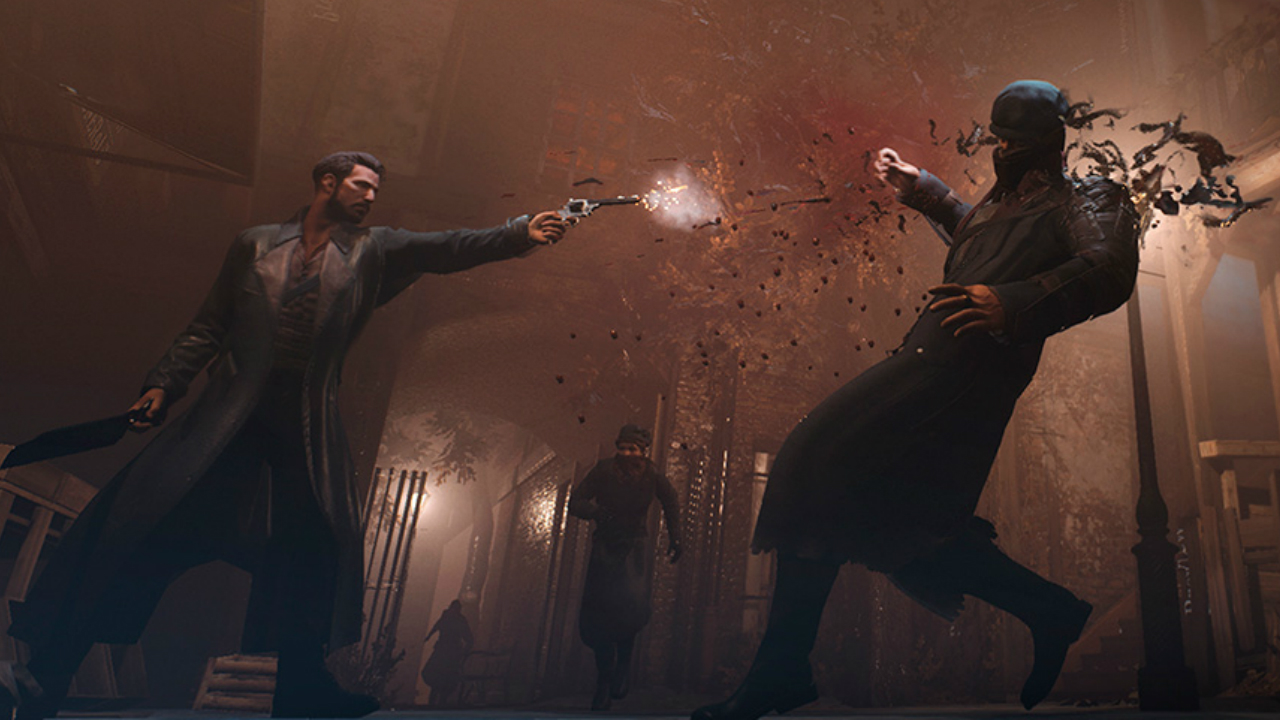
Morality here is a tactical choice: kill many and become powerful beyond belief, but play a game with fewer NPCs and quests, or heal those around you and kill only enough to maintain your strength. If you refrain from killing completely, which is a possibility, you’ll “be far weaker when facing strong enemies” - but that’s your choice. However, there is a mid-way point between killing and healing. As would be expected in a vampire game, Beauverger told me that Reid can turn others into fellow bloodsucking denizens of the night. His phrasing here is particularly interesting, as he says those you have the option to turn into a vampire “may or may not be asking for it”. Is vampirism a punishment in that case? Or are some people literally begging to be turned into vampires, so that they’re saved from being ravaged by the Spanish flu?
The choice to kill doesn’t only spring up at scripted moments in the game. Beauverger is clear to emphasise that the player is “free to kill whoever they want in our game”, which “includes killing each and every citizen they encounter in London”. With so much choice comes great responsibility, and one stand-out mechanic definitely makes you aware of the gravity of the situation.
That mechanic is called the ‘“last thought”. When you suck someone dry via your pointy incisors, Vampyr makes sure they don’t fade into a faceless crowd, as the last thing going through their mind will echo in your ears. It could be about what will happen to their child with them gone, or how they wish they’d told their partner they love them more often, or just a final random thought. This freaks me out a bit, because it immediately makes me think about what my last thought would be if I was nearing my untimely end and heard someone telling me to walk into the light. Scarily, it looks like the victims might end up resonating with players just as much as Reid. Going far further than making you wrestle with what you’ve done in terms of gameplay repercussions, Vampyr forces players to confront the fact that, as Beauverger put it, you “just took the life of a conscious being who had thoughts, emotions, hopes, and issues”.
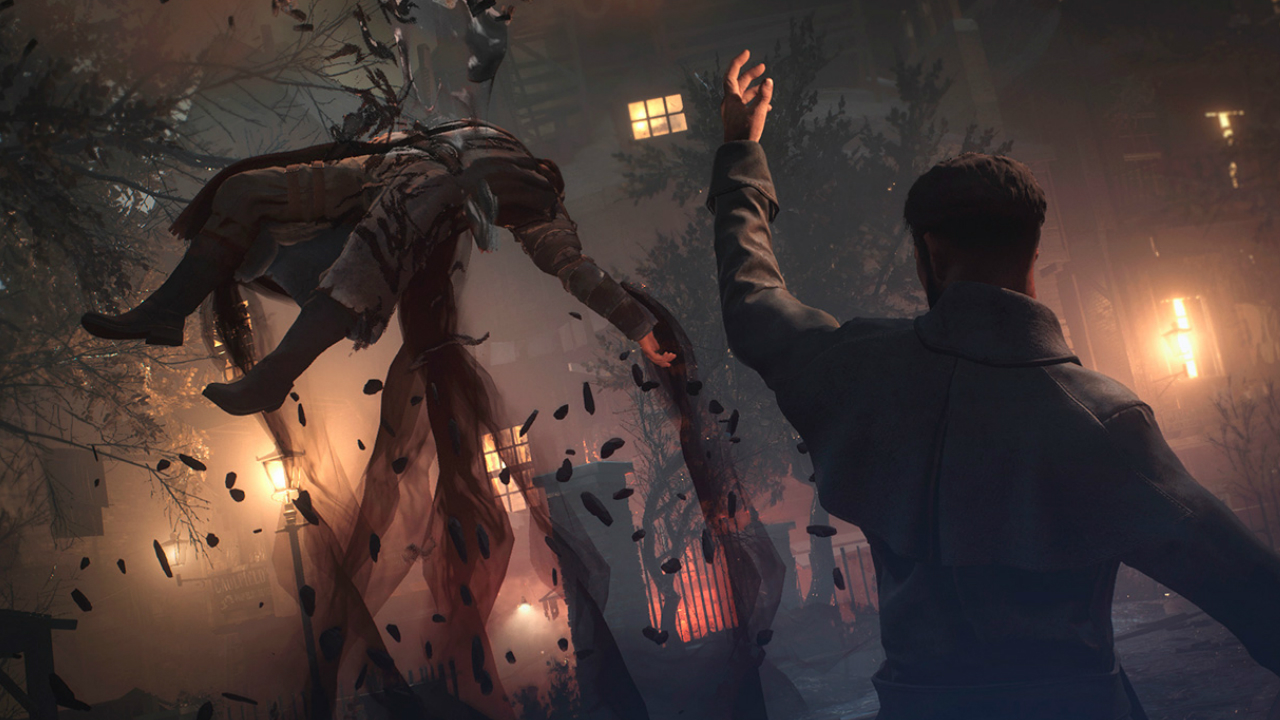
With a name like Vampyr there is the assumption that the game only deals with the blood-sucking, pale creatures we’re all familiar with, but Beauverger has an interesting remark to make about which other supernatural creatures players will meet. He told me that “all supernatural creatures in Vampyr will be linked to the vampire mythology”. There won’t be any ghosts, ghouls, or werewolves in Vampyr, but he went on to say something rather fascinating. “Maybe, just maybe”, Beauverger says (I imagine him whispering at this point), “ghosts, ghouls and werewolves are just different species of vampire, wrongly labelled by mortals when facing supernatural phenomenon beyond their understanding?”
What on earth could that mean? “Vampire” might be a similar term to dog, or cat - one catch-all word that encapsulates a basic set of characteristics, but within which there are many different types of creature. Indeed, there’s already one other type of vampire around in the game, called Skals. Although Reid is what Beauverger calls a “true vampire” and doesn’t need to worry about “death, disease, or anything like that”, the Skals which lurk around London suggest that vampirism and the Spanish flu might have something in common. Skals are “lesser vampires who seem linked to the Spanish flu epidemic” and Reid will be investigating precisely how they came about. Undoubtedly there will be some more moral quandaries here: the only thing which could be worse than being killed by either a vampire or the flu is becoming a grotesque undead hybrid of both.
Beauverger left me with one final observation which haunts me as I lie awake at night, anxiously feeling my neck for any bite marks. “Maybe even “vampire” is an incorrect word for these creatures who only need blood to survive for eternity? Who really knows? In Vampyr, it seems even the vampires have forgotten where they come from.”
Vampyr by Dontnod Entertainment will be released in 2017 on Xbox One, PS4, and PC.
While here at GamesRadar, Zoe was a features writer and video presenter for us. She's since flown the coop and gone on to work at Eurogamer where she's a video producer, and also runs her own Twitch and YouTube channels. She specialises in huge open-world games, true crime, and lore deep-dives.



